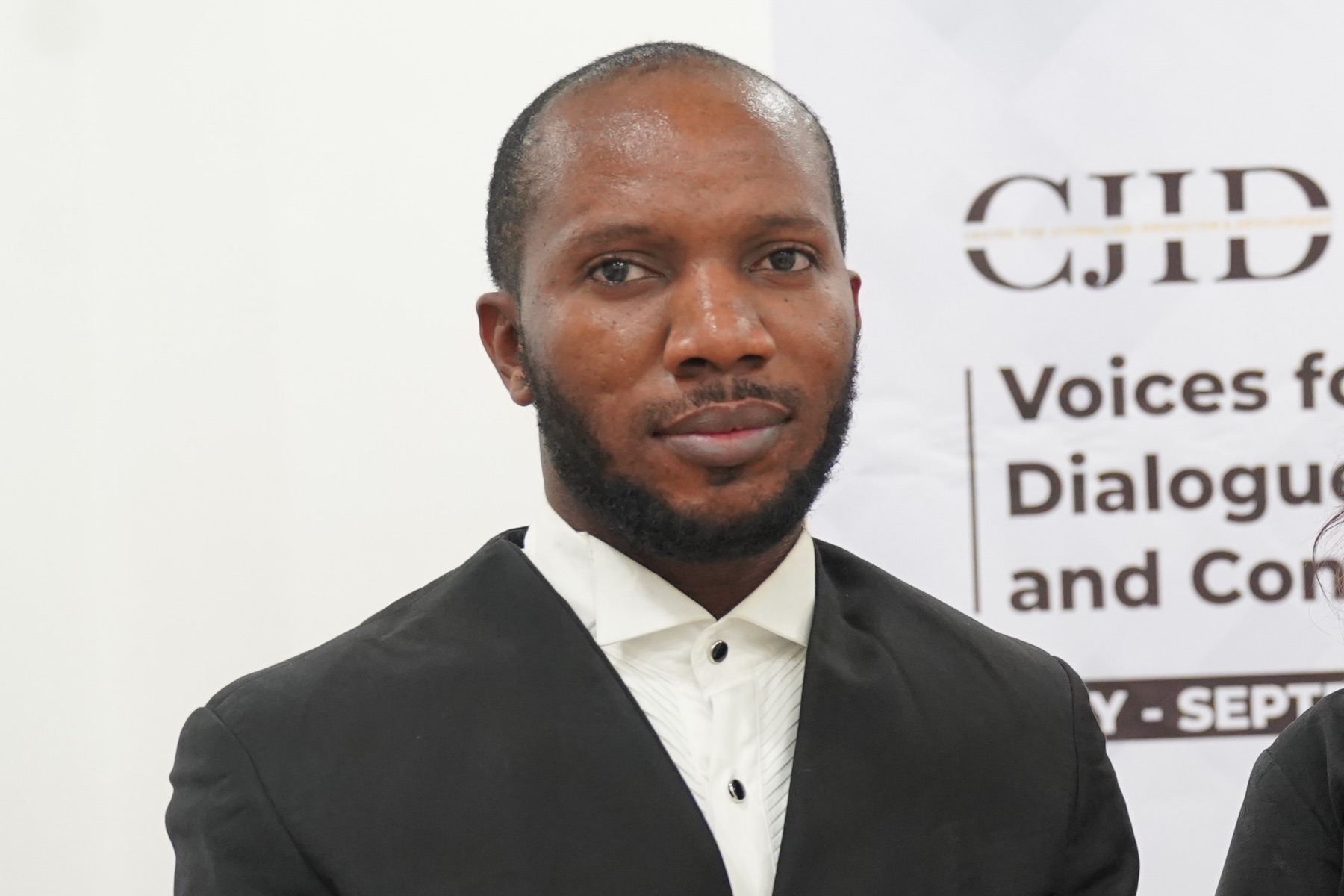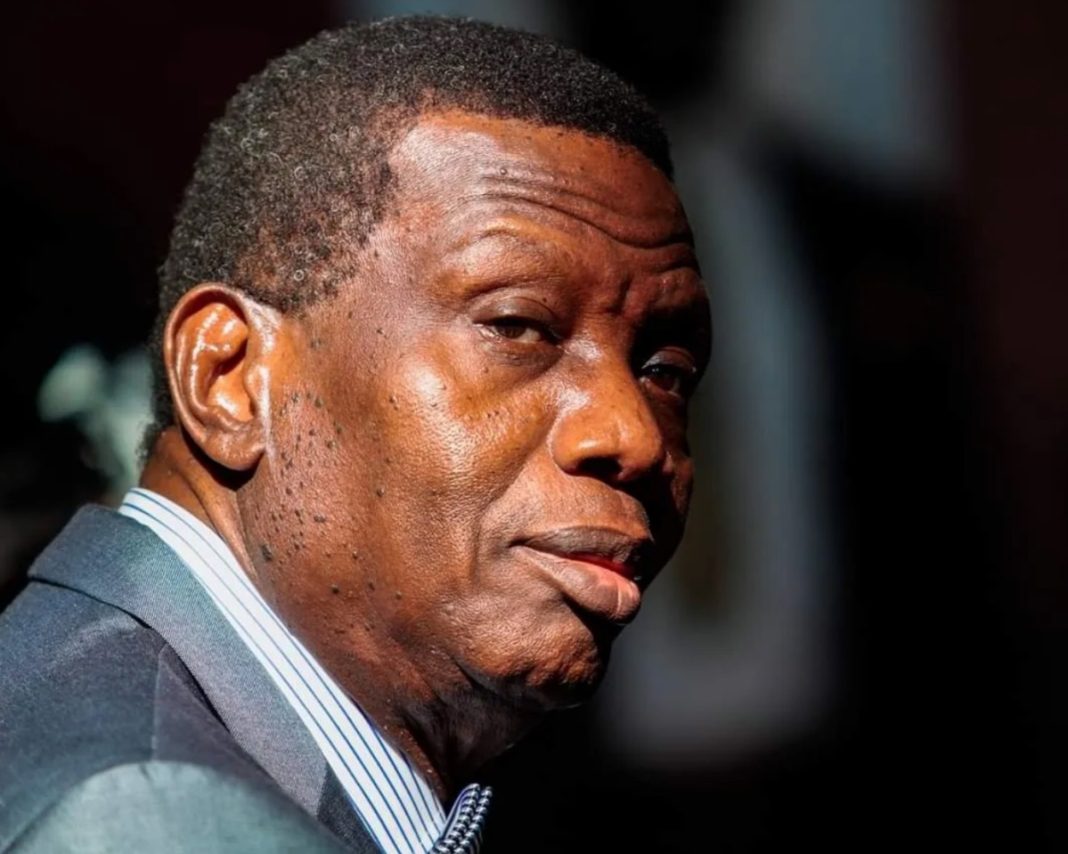LAGOS, Nigeria – Prominent human rights lawyer Inibehe Effiong has publicly criticised Pastor Enoch Adeboye, the General Overseer of the Redeemed Christian Church of God, RCCG, for recent remarks linking Nigeria’s economic challenges to divine intervention and political sabotage.
Effiong called on the revered cleric to retire, arguing that his statements undermine the credibility of religious leadership in the country.
Effiong’s comments shared on his X (formerly Twitter) handle on Saturday, November 16, 2024, were in response to a sermon by Adeboye in which the pastor claimed that prayers had prevented the Nigerian Naira from depreciating to ₦10,000 per U.S. dollar.
Adeboye further suggested that the current economic crisis was orchestrated by individuals opposed to President Bola Tinubu’s removal of fuel subsidies.
Pastor Enoch Adeboye should retire and go home. His controversial statements on the state of the nation offends the sensibilities of right thinking members of the society.
In life, it is always better to know when to exit the stage. The fact that Adeboye is holding brief for… pic.twitter.com/UeX2lifqni
— Inibehe Effiong (@InibeheEffiong) November 16, 2024
Adeboye’s Controversial Sermon
In a video sermon circulated online, Adeboye asserted that Nigeria’s financial struggles predated Tinubu’s administration but accused subsidy beneficiaries of exacerbating the situation in retaliation against the government’s policy changes.
“If we had not prayed, and God had not answered, $1 would have been ₦10,000,” Adeboye said, attributing the relative stability of the Naira to divine intervention rather than economic policies.

Effiong’s Rebuttal
Effiong condemned the cleric’s remarks as “preposterous,” arguing that economic outcomes are driven by policy and productivity, not prayer.
“Prayers do not have any effect on the exchange rate. Exchange rates are determined by economic and monetary policies and the productivity of a country,” he stated.
He further criticised Adeboye’s association with the Tinubu administration, describing it as “a mockery of Christianity.”
According to Effiong, the pastor’s perceived defence of the government undermines his moral authority, particularly given widespread dissatisfaction with the country’s economic direction.
“Pastor Enoch Adeboye should retire and go home,” Effiong wrote. “His controversial statements on the state of the nation offend the sensibilities of right-thinking members of society. In life, it is always better to know when to exit the stage.”
Broader Critique of Religious Leadership
Effiong’s criticism extended to the broader role of religious leaders in Nigerian politics. He accused some clerics of hypocrisy and complicity in supporting corrupt politicians, noting that many Nigerians have become disillusioned with the Church as a result.
“Adeboye has been praying for decades for Nigeria and Nigerian politicians, and things haven’t improved,” Effiong said. “It is either his prayers are not working, or God is not listening to him.”
Effiong also highlighted inconsistencies in the government’s handling of the fuel subsidy policy, accusing Tinubu of continuing to pay billions in subsidies despite public statements to the contrary. “Tinubu’s government has not addressed the rot and corruption in the oil sector. We are not all naïve and gullible,” he added.
Public Reaction
The exchange has sparked widespread debate on social media, with Nigerians divided over the appropriateness of Adeboye’s statements and Effiong’s critique.
Supporters of the pastor argue that his remarks reflect faith in divine intervention, a cornerstone of his ministry, while critics accuse him of using religion to obscure the government’s shortcomings.
Adeboye has not responded to Effiong’s comments, and the RCCG has maintained silence on the issue.
However, the controversy highlights the growing scrutiny of religious figures and their role in shaping public discourse in Nigeria’s complex socio-political landscape.
As Nigeria continues to grapple with economic challenges, the interplay between faith, policy, and leadership remains a contentious issue.







